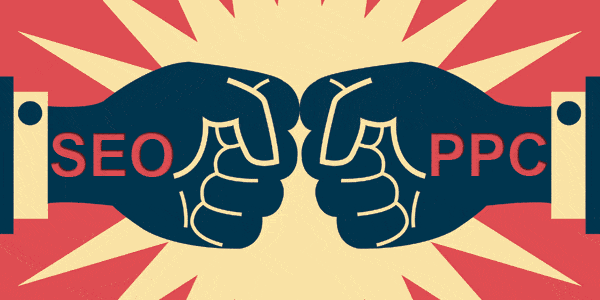
PPC or SEO?
If you own a business and have your mind boggling over questions like which online marketing strategy suits your business best, if you should engage with more than one strategy, in what proportion should you use the strategies, which strategy is easier to manage, and which one would give you a better success rate in your marketing endeavor… Fasten your seat-belts as we’ll discuss a couple of online marketing strategies. We will discuss both PPC and SEO as well as providing recommendations as to which method would prove to be more suitable for you.
With regard to these strategies, it is also important for you to understand that these two strategies have one role in common; they are both means of driving up the traffic directed to a website. Both strategies can be used independently of one another and can also be used simultaneously, this is more beneficial.
SEO and PPC; what are the Differences?
The simple idea behind how these two strategies work is usually apparent in their respective names. While in Pay per Click (PPC), being a business owner you pay search engines or any other publisher of your advertisement according to the number of clicks you get and accordingly for the paid traffic that is being driven to your site. With SEO on the other hand, you incorporate elements in the design of your website so that the position of your website improves in the organic (otherwise known as ‘natural’) listings of the search engine for popular keywords. The most interesting part of this is that it brings ‘free’ traffic to your website. However, you will need to spend some money to incorporate SEO elements while building the website, for example, working with an SEO specialist. The next few paragraphs briefly highlight some of the benefits and drawbacks of the two major search marketing strategies.
Pay Per Click Campaigns
Below are a few benefits and drawbacks of the PPC online marketing strategy.
Benefits
- PPC campaigns guarantee exposure to a website thereby bringing in results faster; often in just hours.
- They are easier to monitor.
- PPC offers room for detailed analysis for the business owner in terms of the number of times the advertisement has been displayed, the number of clicks, the conversion rate, the most popular advertisement, where the ads are to be displayed and so forth. The results are more quantifiable.
- The business owner can also decide the sot at which the advertisement has to be displayed and begin or end the campaign as per wish. This gives the business owner more control.
- PPC campaigns help in the study of how design changes in the architecture of the website affects the rate of conversion.
- PPC campaigns are better suited for those advertisement that are periodic in nature, those that need to be displayed to shorter periods, and those that cannot wait for longer periods to improve positions in organic listings.
Drawbacks
- PPC campaigns only last for as long as the business owner pays for them. The moment the business owner stops paying, they cease to appear from search engine listings and other content networks.
- Close observations proved that PPC campaigns tend to be expensive on two counts; first is when the product niche is highly competitive, the spending budget rises. Secondly, when the product that the business owner advertises faces firm competition from big brands, a lot of money would be spent on the PPC campaign.
- Statistics has proved that PPC campaigns only generate about 10% of the target portion to click on the advertisement; organic listings generate about 90% of the traffic.
Search Engine Optimisation
Below are a few benefits and drawbacks of the SEO online marketing strategy.
Benefits
- SEO-generated traffic far outweighs the result of a PPC campaign. The traffic is increased significantly if your website appears in the top few lines of organic search listings.
- Once the organic search listings rankings of your website improve, you don’t have any cause to pay more for extra traffic that is generated.
- Once your website traffic is stabilized over a period, you stand to enjoy high traffic without the need to make any payment. It will be for free. You can afterwards stop the application of SEO and link building strategies.
- When properly done, link building and SEO serves to improve the authority factor and credibility of your website.
- High quality websites always stand to knock down other brands with inferior websites irrespective of how big the brand may be. The most interesting part is that this can be done without spending huge amount of money.
Drawbacks
- Implementing SEO design techniques and link building takes a lot of time. Results won’t come overnight. It takes between 6 to 8 months to attain high rankings in search listings. Other factors include website quality and existing competition in the product niche that is being advertised.
- Organic results can be a bit tricky and unpredictable with the results that there is no assurance of any kind on the ranking that the website can be at.
- A situation might arise where the complete architecture of the website has to be changed if the site is not user-friendly when the optimization is being done.
Concluding Thoughts
At the end of everything, whichever online marketing strategy you select – between SEO and PPC – depends on the nature and purpose of the campaign and what your goals are. If you need quick exposure, PPC could be the best option. SEO demands long-term investments and the results are not easily seen. The best solution for a business appears to be using PPC as a campaign tool to cover the deficiencies left by SEO. For instance, PPC can be used to run advertisements on content networks, to conduct research on keywords suitability for the campaigns, for testing the design of an upcoming website and so on – This can all be used to inform your SEO strategy for achieving long-term placements.
Being a business owner, the online marketing strategy that you choose would depend on your business industry, goals and other marketing, including and the existing ways and manner in which you advertise your products to your existing pool of customers.

